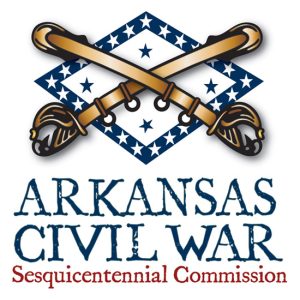calsfoundation@cals.org
Skirmish at Hickory Station
|
Location: |
|
|
Date: |
April 2, 1865 |
|
Principal Commanders: |
Captain Richard C. Custard (US); Captain Michael F. Mayberry (CS) |
|
Forces Engaged: |
112th United States Colored Troops (US); Carlton’s Regiment of Arkansas Cavalry (CS) |
|
Estimated Casualties: |
0 (US); 1 wounded (CS) |
|
Results: |
Union victory |
This brief engagement occurred on the Little Rock and DeVall’s Bluff section of the Memphis and Little Rock Railroad and was one of the final Civil War engagements in Arkansas.
On the morning of April 2, 1865, Captain Michael F. Mayberry led twenty-six men from Company D of Colonel Charles H. Carlton’s Regiment of Arkansas Cavalry in an attack against the railroad approximately four miles from Hickory Station, located in what is now Lonoke County. Mayberry’s men removed two rails, as well as the spikes from eight or nine additional rails, all of which caused the morning train to derail, except for the passenger car.
Captain Richard C. Custard (who served previously in Arkansas as a sergeant with the Third Minnesota Infantry) commanded the train’s guard, which was composed of nineteen soldiers of the 112th United States Colored Troops (USCT), and prepared his command for an assault. Mayberry’s force charged the train to within 400 yards but met stiff resistance from the guards. After this initial attack, Mayberry’s command scattered and retreated, but it regrouped and remained in the area and visible at a distance.
During the initial assault, several civilians sought shelter in the surrounding prairie; all but four or five immediately obeyed Custard’s order to return to the train. Mayberry’s troops captured at least two civilians, taking their possessions and clothing. Mayberry soon released the captured civilians, by which means he delivered a message in which he demanded the immediate surrender of the train and its guard. He claimed to command sufficient troops to take the train by force. While he promised proper treatment for all prisoners, Mayberry threatened no quarter to all who refused to surrender.
Custard did not reply to Mayberry’s note or demands. By noon, the Confederates withdrew in multiple directions by squads and made no further attempt against the train. With the train returned to the tracks, it continued on its journey to Little Rock (Pulaski County).
In his official report, Custard singled out Private Fred Taylor of the Twelfth Michigan Infantry for apparent cowardice during the skirmish. Taylor, serving as a dispatch bearer for Brigadier General Alexander Shaler’s Seventh Corps headquarters, had thrown away his saber and dispatches and run off until Custard’s men repulsed the attack. Major General J. J. Reynolds, commander of the Department of Arkansas, echoed this reprimand in Special Order Number 84, issued from his headquarters on April 6, 1865.
The Federals reported no casualties, but they estimated Confederate casualties as one wounded soldier and one horse possibly wounded.
For additional information:
Oates, Stephen B. Confederate Cavalry West of the River. Austin: University of Texas Press, 1961.
The War of the Rebellion: A Compilation of the Official Records of the Union and Confederate Armies. Series 1, Vol. 48, Parts 1 and 2. Washington DC: Government Printing Office, 1896.
Robert Patrick Bender
Eastern New Mexico University–Roswell
 ACWSC Logo
ACWSC Logo 




Comments
No comments on this entry yet.